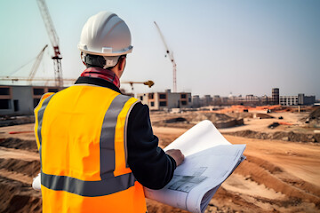The Significance of Environmental Evaluations in New Jersey Development Projects
In the dynamic sphere of construction and
real estate in New Jersey, the importance of environmental evaluations has
experienced significant growth. Structural engineer NJ,
who are instrumental in initiating new projects or renovations, have the
responsibility of ensuring not only maximum safety and durability but also
adherence to environmental regulations and sustainability objectives. This
underscores the vital role of a comprehensive NJ
transition study.
Environmental evaluations focus on
assessing potential contamination of properties and their ecological
repercussions. Given New Jersey's rich industrial history and varied ecological
regions, these assessments hold particular significance. Utilizing their
expertise and advanced methodologies, structural engineers in NJ conduct these
evaluations to identify any environmental risks tied to a site, which is a
crucial measure for safeguarding investors, property owners, and the wider
community against unexpected environmental threats.
The evaluation process typically unfolds
in two principal phases: Phase I entails an extensive review of records,
on-site inspections, and consultations to detect possible pollution risks,
while Phase II involves thorough testing and sampling to verify the existence
of hazardous materials. In New Jersey, this methodology is integral to a
complete transition study, an exhaustive assessment performed to guarantee that
property transitions—whether through sale, redevelopment, or repurposing—occur
seamlessly, within legal frameworks, and with environmental considerations in
mind.
For structural engineers and developers in
NJ, these environmental evaluations extend beyond mere compliance with
regulations. They serve as critical tools for facilitating responsible and
sustainable development initiatives. By identifying and mitigating
environmental hazards at an early stage, these assessments help foster safer,
healthier, and more sustainable communities.
Ultimately, whether addressing a new
construction endeavor or revitalizing a historic property in New Jersey,
integrating environmental evaluations into the planning and development
processes is essential. Through diligent NJ transition study assessments,
structural engineers in NJ continue to lead in achieving a harmonious balance
between development ambitions and environmental stewardship, paving the way for
a sustainable future.
For
more information about Structural
engineer come and visit our website : https://www.lockatong.com/




Comments
Post a Comment